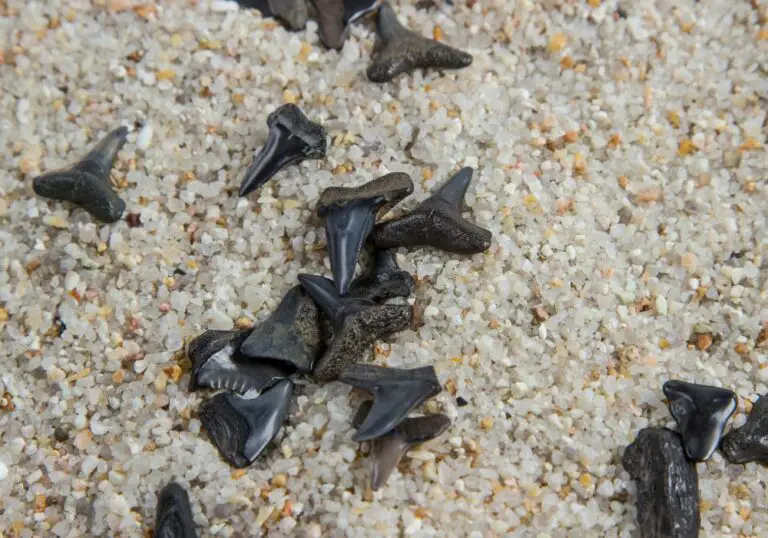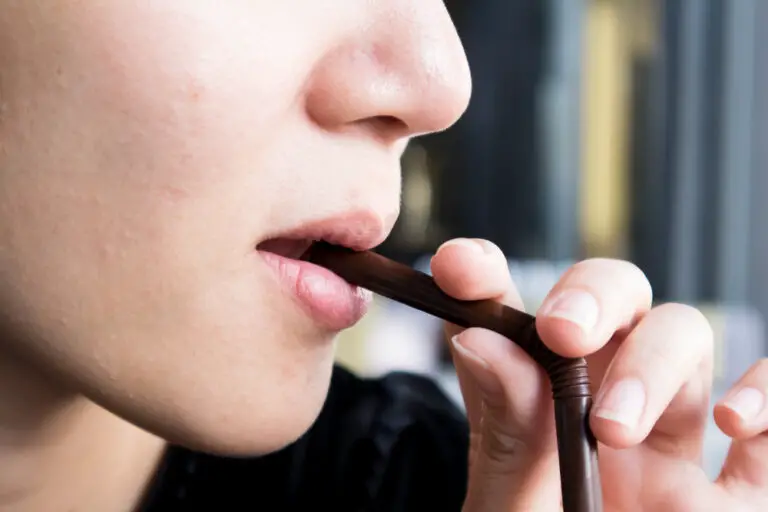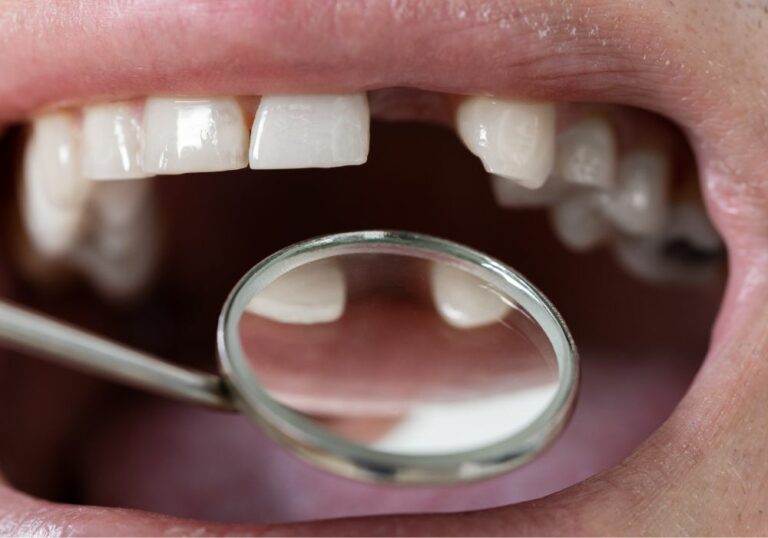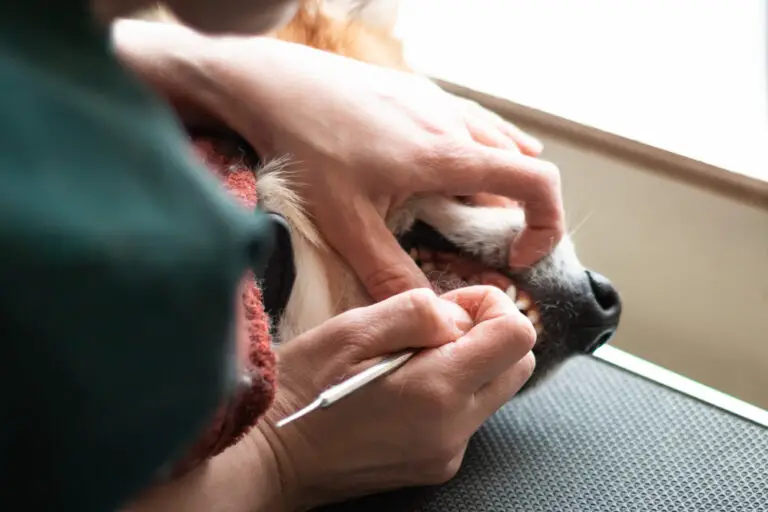If you’ve recently had a tooth extraction, you may be wondering if it’s safe to use toothpaste to brush your teeth. The answer is not as straightforward as a simple yes or no. While you can still brush your teeth, it’s important to follow certain guidelines to ensure proper healing and prevent complications.
After a tooth extraction, the area where the tooth was removed needs time to heal. Using toothpaste too soon can disrupt the healing process and cause discomfort. It’s recommended to wait at least 3 to 4 days before using toothpaste to brush your teeth. During this time, you can still brush your teeth but use only water or a gentle mouthwash.
It’s also important to be gentle when brushing around the extraction site to avoid disturbing the blood clot that forms to promote healing. Your dentist may recommend using a soft-bristled toothbrush and avoiding brushing directly over the extraction site until it’s fully healed. By following these guidelines, you can ensure a smooth recovery and maintain good oral hygiene after a tooth extraction.
Understanding Tooth Extraction
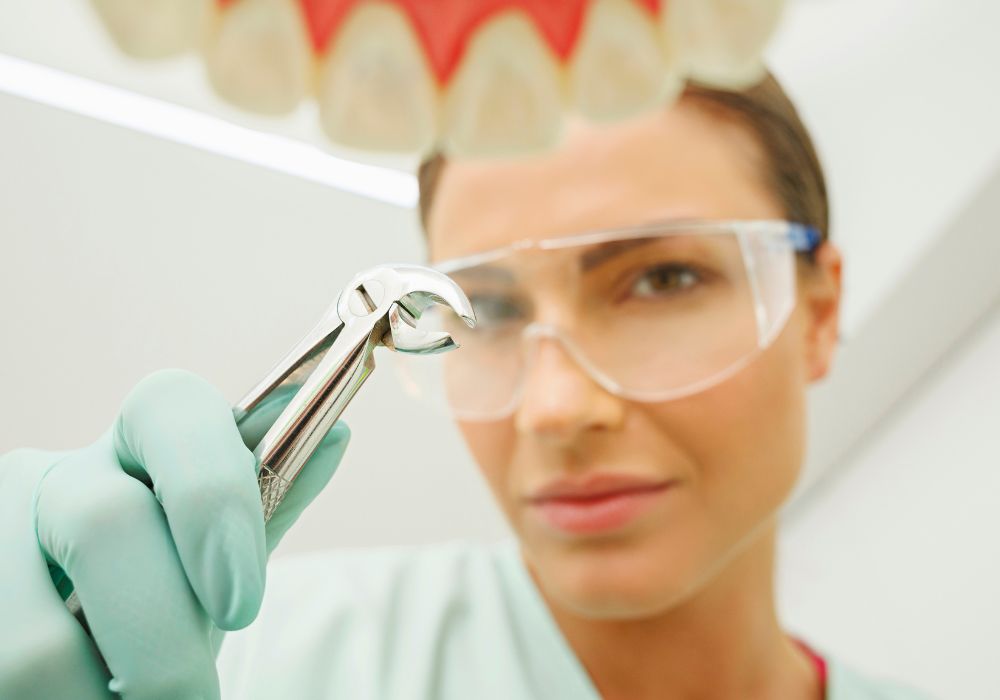
If you have recently undergone a tooth extraction procedure, it is important to understand the aftercare process to ensure quick and effective healing. Tooth extraction is a common dental procedure that involves removing a tooth from its socket in the jawbone. This procedure can be necessary for a variety of reasons, including severe tooth decay, gum disease, or injury.
After the tooth extraction, it is essential to maintain proper oral hygiene to prevent infection and promote healing. You should avoid smoking, drinking through a straw, and consuming hot or hard foods for at least 24 hours after the procedure. Additionally, you should avoid vigorous rinsing or spitting to prevent dislodging the blood clot that forms in the socket.
It is recommended to rinse your mouth gently with an antimicrobial mouthwash two to three times a day, starting 24 hours after the procedure. You should avoid brushing directly over the extraction site until your dentist tells you it is safe to do so. However, you can still brush and floss all other areas normally.
You may experience some tenderness or soreness after the procedure, but you should no longer feel pain or discomfort after three days. You can start using toothpaste after about three days when the empty tooth socket has mostly healed. There should be no more bleeding present, and swelling should be minimal at this point.
In summary, tooth extraction is a common dental procedure that requires proper aftercare to ensure quick and effective healing. Maintaining good oral hygiene, avoiding certain foods and activities, and following your dentist’s instructions can help prevent infection and promote healing.
Importance of Oral Hygiene After Tooth Extraction
Taking care of your mouth after a tooth extraction is crucial to ensure proper healing and avoid complications. Maintaining good oral hygiene can help prevent infections and promote faster healing. Here are some reasons why oral hygiene is important after tooth extraction:
Prevent Infection
After a tooth extraction, the extraction site is vulnerable to infection. Bacteria can easily enter the site and cause an infection, which can lead to pain, swelling, and other complications. By maintaining good oral hygiene, you can reduce the risk of infection and promote proper healing.
Promote Healing
Good oral hygiene can also help promote faster healing after a tooth extraction. Brushing and flossing regularly can remove food particles and bacteria from your mouth, which can prevent complications and promote healing.
Reduce Discomfort
Taking care of your mouth after a tooth extraction can also help reduce discomfort. Brushing and flossing can help prevent food particles from getting stuck in the extraction site, which can cause pain and discomfort.
Avoid Dry Socket
Dry socket is a condition that can occur after a tooth extraction when the blood clot that forms in the extraction site becomes dislodged or dissolves. This can cause intense pain and delay healing. By maintaining good oral hygiene, you can reduce the risk of dry socket and promote proper healing.
In conclusion, taking care of your mouth after a tooth extraction is essential to ensure proper healing and avoid complications. By maintaining good oral hygiene, you can reduce the risk of infection, promote faster healing, reduce discomfort, and avoid dry socket.
Can I Wash My Mouth with Toothpaste After Tooth Extraction?
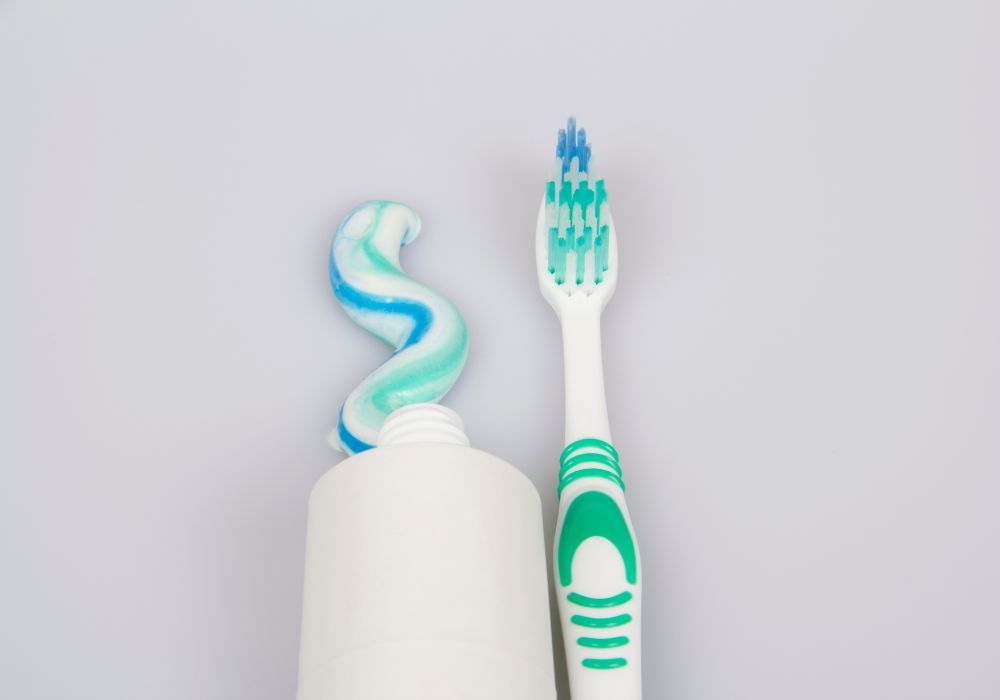
After a tooth extraction, it’s important to take proper care of your mouth to prevent complications and promote healing. One common question people have is whether they can wash their mouth with toothpaste after a tooth extraction. Here’s what you need to know:
Avoid using toothpaste for the first few days
It’s generally recommended to avoid using toothpaste for at least the first 3 to 4 days following a tooth extraction. This is because the extraction site needs time to clot and heal, and using toothpaste can disrupt this process. Instead, you can rinse your mouth gently with warm salt water or a non-alcoholic mouthwash to keep the area clean.
Use a gentle toothpaste after a few days
After a few days have passed, you can start using a gentle toothpaste to brush your teeth. Look for a toothpaste that is specifically designed for sensitive teeth or post-surgery use, as these are less likely to irritate the extraction site. Be sure to brush gently and avoid the extraction site as much as possible.
Avoid aggressive brushing or rinsing
While it’s important to keep your mouth clean after a tooth extraction, it’s also important to avoid being too aggressive with your brushing or rinsing. Use a soft-bristled toothbrush and brush gently, avoiding the extraction site as much as possible. When rinsing your mouth, take a small sip of water or mouthwash and swish it gently around your mouth before spitting it out.
Follow your dentist’s instructions
Every tooth extraction is different, and your dentist may have specific instructions for caring for your mouth after the procedure. Be sure to follow their instructions carefully and ask any questions you may have. If you experience any pain, swelling, or other symptoms, contact your dentist right away.
In summary, it’s generally best to avoid using toothpaste for at least the first few days after a tooth extraction to allow the extraction site to heal. After a few days, you can use a gentle toothpaste to brush your teeth, but be sure to avoid being too aggressive with your brushing or rinsing. Follow your dentist’s instructions for caring for your mouth after the procedure to promote healing and prevent complications.
Recommended Oral Care After Tooth Extraction
After a tooth extraction, it’s important to take good care of your mouth to promote healing and prevent infection. Here are some guidelines for recommended oral care after tooth extraction.
When to Start Brushing
It’s important to keep your mouth clean after a tooth extraction, but you should wait at least 24 hours before brushing your teeth. After the first day, you can start brushing your teeth gently, but avoid brushing the extraction site directly. You should also avoid using toothpaste for the first few days to prevent irritation and dryness.
How to Rinse Your Mouth
Rinsing your mouth can help keep it clean and promote healing. After the first 24 hours, you can start rinsing your mouth gently with a saltwater solution or a gentle mouthwash. To rinse, take a small sip of the solution, swish it around your mouth for a few seconds, and then spit it out. Avoid aggressive rinsing, as it may disturb the blood clot forming in the extraction site.
What Toothpaste to Use
After the first few days, you can start using toothpaste again, but it’s important to choose a gentle toothpaste that won’t irritate the extraction site. Look for a toothpaste that’s free of harsh ingredients like alcohol, sodium lauryl sulfate, and strong flavors. You can also ask your dentist for recommendations on a toothpaste that’s safe to use after a tooth extraction.
In summary, after a tooth extraction, it’s important to wait at least 24 hours before brushing your teeth, rinse your mouth gently with a saltwater solution or gentle mouthwash, and use a gentle toothpaste that won’t irritate the extraction site. By following these guidelines, you can help promote healing and prevent infection in your mouth.
Potential Risks and Complications
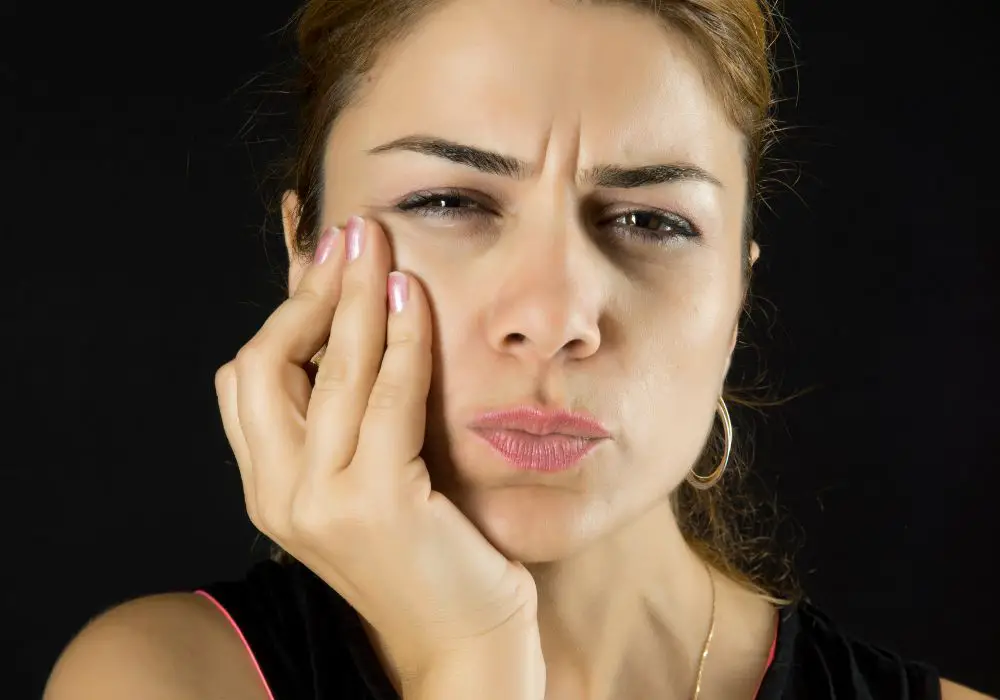
After a tooth extraction, it is essential to take proper care of the extraction site to avoid complications. While brushing your teeth is an important part of oral hygiene, it is crucial to avoid using toothpaste or rinsing your mouth for the first 24 hours after the procedure. Here are some potential risks and complications associated with washing your mouth with toothpaste after tooth extraction:
Dry Socket
Dry socket is a common complication that can occur after tooth extraction. It happens when the blood clot that forms in the socket is dislodged or dissolves before the wound heals. This can cause severe pain and discomfort, and it may take several days to heal. Using toothpaste or rinsing your mouth vigorously can increase the risk of developing dry socket.
Infections
Infections can occur after tooth extraction if the extraction site is not kept clean. Using toothpaste or rinsing your mouth too soon after the procedure can introduce bacteria into the wound, increasing the risk of infection. Signs of infection include fever, swelling, and pus or discharge from the extraction site. If you experience any of these symptoms, contact your dentist immediately.
Bleeding and Swelling
Using toothpaste or rinsing your mouth too soon after tooth extraction can also cause bleeding and swelling. The suction created by brushing or rinsing can dislodge the blood clot, leading to bleeding and delaying the healing process. Swelling can also occur if the extraction site is irritated or infected. To avoid these complications, it is essential to follow your dentist’s instructions carefully and avoid using toothpaste or rinsing your mouth for the first 24 hours after the procedure.
In summary, using toothpaste or rinsing your mouth with water after tooth extraction can increase the risk of complications such as dry socket, infections, bleeding, and swelling. It is important to follow your dentist’s instructions carefully and avoid these activities for the first 24 hours after the procedure to ensure proper healing and avoid complications.
When to Consult Your Dentist
After a tooth extraction, it is essential to take proper care of your mouth to ensure quick healing and prevent complications. While it is generally safe to brush your teeth after a tooth extraction, you should avoid using toothpaste for at least three to four days following the procedure. Instead, you can rinse your mouth with salt water to keep the extraction site clean.
If you experience any of the following symptoms after a tooth extraction, you should consult your dentist immediately:
- Severe pain that is not relieved by over-the-counter painkillers
- Excessive swelling or bleeding
- A foul taste or odor in your mouth
- Difficulty opening your mouth or swallowing
- A fever or chills
Your dentist may prescribe antibiotics or recommend additional treatments to help manage your symptoms and prevent complications. It is essential to follow your dentist’s instructions carefully to ensure a speedy recovery.
If you have any concerns or questions about caring for your mouth after a tooth extraction, don’t hesitate to contact your dentist. They can provide you with the guidance and support you need to ensure a healthy and successful recovery.
Frequently Asked Questions
When can I use toothpaste after wisdom tooth extraction?
You can resume tooth brushing with toothpaste the day after surgery. However, be careful when brushing near the extraction site for the first 2-3 days. Your dentist may advise you to avoid brushing around the extraction site for a few days to allow the wound to heal.
Can I use mouthwash after tooth extraction?
Yes, you can use mouthwash after tooth extraction, but avoid alcohol-based mouthwashes, which can delay healing. Instead, use a gentle, non-alcoholic formula that can help speed up recovery during the tooth extraction healing process.
When can I spit after tooth extraction?
Avoid spitting for at least 24 hours after tooth extraction, as it can cause the blood clot to dislodge. Instead, let the saliva drool out of your mouth or use a tissue to gently wipe it away.
Salt water rinse after tooth extraction?
After 12 hours, you may be able to gently rinse your mouth. Rinse 4 times a day with 1/2 teaspoon of salt in a glass of warm water or as directed by your dentist. This can help keep the extraction site clean and prevent infection.
How to brush teeth after tooth extraction?
Brush your teeth gently, avoiding the extraction site. Ask your dentist if you can use toothpaste and when you can start rinsing your mouth gently. Be careful when brushing near the extraction site for the first few days to allow the wound to heal.
What is the best way to clean your teeth after tooth extraction?
The best way to clean your teeth after tooth extraction is to brush them gently, avoiding the extraction site. Rinse your mouth with salt water or as directed by your dentist. Avoid spitting and using mouthwash for at least 24 hours after the extraction.


